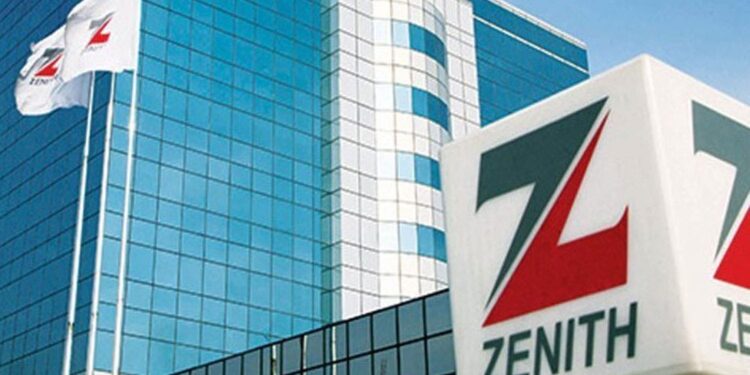Zenith Bank Ghana has reported an impressive increase in its asset value for the first quarter of 2023. According to the bank’s financial statement, its asset value rose from GHS 9.7bn to GHS 10.7bn year-on-year from Q1 2022 to Q1 2023. This growth can be largely attributed to the bank’s investment securities, which increased from GHS 4.3bn in Q1 2022 to GHS 5.4bn in Q1 2023, as well as a rise in cash and cash equivalents from GHS 2.4bn in Q1 2022 to GHS 2.8bn in Q1 2023.
Despite the impressive growth in asset value, there was a decline in the bank’s loans and advances to customers from GHS 1.6bn to GHS 1.3bn within the review period. This decline may be attributed to the economic challenges that Ghana is currently facing, as many businesses and individuals may be cautious about taking on additional debt.
The bank’s net profit for Q1 2023 was GHS 217m, which represents a significant increase from the previous year’s net profit figure of GHS 92m. This is a positive sign for the bank, as it indicates that it has been able to generate more revenue and maintain strong profitability despite the country’s economic challenges.
Zenith Bank Ghana’s liability also witnessed an increase from GHS 8.1bn to GHS 9.5bn, driven mainly by deposits from customers which rose from GHS 7.3bn to GHS 9.2bn. This is indicative of the bank’s solid customer base and the trust that its customers have in its financial stability.
However, the bank’s non-performing loans deteriorated slightly from 4.72% to 5.05% in Q1 2022 and Q1 2023, respectively. This suggests that some of the loans that the bank has extended to customers may not be performing as expected, which could potentially lead to credit risk and impact the bank’s profitability. Therefore, it is important for the bank to closely monitor and manage its loan portfolio to ensure that it is balanced and performing as expected.
An area Zenith Bank Ghana needs to focus on is the decline in its capital adequacy ratio from 40.23% in Q1 2022 to 34.34% in Q1 2023. The capital adequacy ratio is a measure of the bank’s ability to absorb unexpected losses and maintain its financial stability. The decline in this ratio may indicate that the bank is taking on more risks and may need to raise additional capital to maintain its financial stability.
Overall, the first quarter of 2023 has been a mixed bag for Zenith Bank Ghana. While the bank has shown impressive growth in asset value and strong profitability, there are concerns about the decline in loans and advances, the increase in non-performing loans, and the decline in the capital adequacy ratio. These issues will need to be addressed by the bank’s management in the coming quarters to ensure its continued success in the Ghanaian financial market.
Source: norvanreports.com

